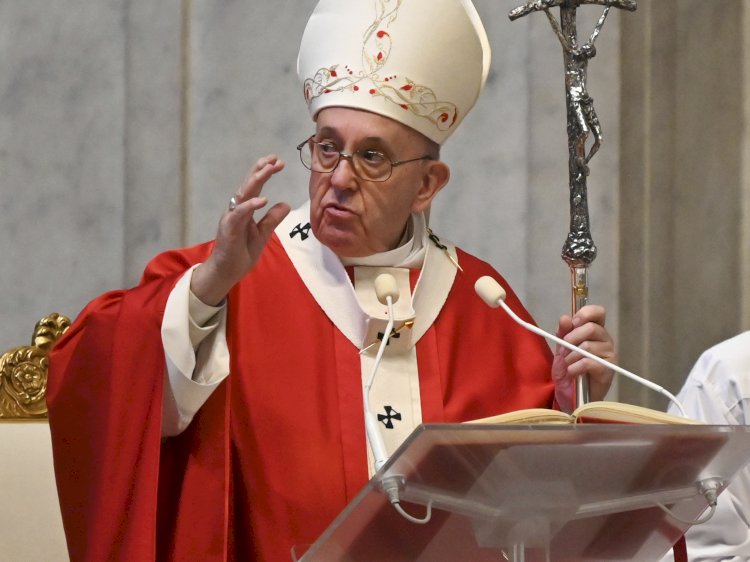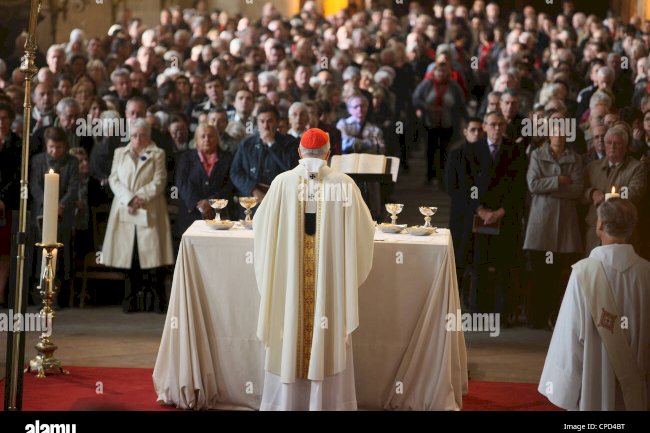2024 IsThe Year of Prayer

Pope Francis has called for 2024 to be honored as a “Year of Prayer.” What does this mean?
The special character of this year is based on the year following, 2025, which is a jubilee year for the Church. The custom of the jubilee year has its origins in Mosaic Israel, in which every fiftieth year was a “jubilee”: slaves were freed and debts forgiven; it was a time to “proclaim liberty throughout the land to all its inhabitants” (Leviticus 25:10). In the Catholic Church, a jubilee year, ordinarily every twenty-five years, is a time of special grace:
It is a year of forgiveness of sins and also the punishment due to sin, it is a year of reconciliation between adversaries, of conversion and receiving the Sacrament of Reconciliation, and consequently of solidarity, hope, justice, commitment to serve God with joy and in peace with our brothers and sisters. A Jubilee year is above all the year of Christ, who brings life and grace to humanity.1
The Church celebrates these milestone anniversaries of Christ’s coming into the world with the proclamation of a time of special grace. The coming jubilee, as announced by Pope Francis, is to be a “Year of Hope”; the Holy Father has called for the faithful to reflect on the theme of “Pilgrims of Hope” in the coming year.
This year, then, is to be a Year of Prayer as spiritual preparation for the coming jubilee, much as Lent and Advent summon us to prepare for Easter and Christmas. A statement from a Vatican press conference explains the importance of this preparation: “In order for the Jubilee to be an event that spiritually enriches the life of the Church and of the entire people of God, becoming a concrete sign of hope, it has to be prepared for and lived in individual communities with that spirit of expectation which is typical of Christian hope.”2 The same document goes on to expand on how this Year of Prayer can best be lived:
This is not a Year marked with particular initiatives; rather, it’s a privileged time in which to rediscover the value of prayer, the need for daily prayer in the Christian life; a time to discover how to pray, and above all how to educate the people of today in prayer, in this age of digital culture, so that prayer can be effective and fruitful.3
By God’s grace, if His people respond wholeheartedly to this call to “rediscover” and revitalize their life of prayer, this preparation for the jubilee Year of Hope can be expected to be a fruitful one. Pope Francis’s remarks may provide some helpful guidance on where to begin:
In this time of preparation, I would greatly desire that we devote 2024, the year preceding the Jubilee event, to a great “symphony” of prayer. Prayer, above all else, to renew our desire to be in the presence of the Lord, to listen to him and to adore him. Prayer, moreover, to thank God for the many gifts of his love for us and to praise his work in creation, which summons everyone to respect it and to take concrete and responsible steps to protect it. Prayer as the expression of a single “heart and soul” (cf. Acts 4:32), which then translates into solidarity and the sharing of our daily bread. Prayer that makes it possible for every man and woman in this world to turn to the one God and to reveal to him what lies hidden in the depths of their heart. Prayer as the royal road to holiness, which enables us to be contemplative even in the midst of activity. In a word, may it be an intense year of prayer in which hearts are opened to receive the outpouring of God’s grace and to make the “Our Father,” the prayer Jesus taught us, the life programme of each of his disciples.4
What's Your Reaction?














